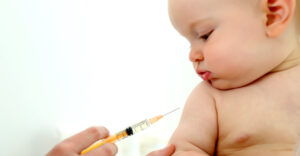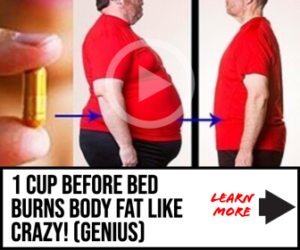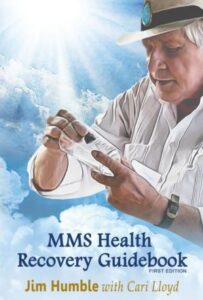Johnson & Johnson First to Test COVID Vaccines on Newborns, Pregnant Women
The pharmaceutical and medical device giant will test its experimental Ad26.COV2.S vaccine on infant children, including newborns, pregnant women and people with compromised immune systems.
Johnson-Johnson To Test COVID Vaccines On Newborns
- Johnson & Johnson plans to test its experimental Ad26.COV2.S vaccine for COVID-19 on infant children (including newborns), pregnant women and people with compromised immune systems.
- Currently, the single-dose Ad26.COV2.S vaccine cannot be given to anyone in the U.S. under 18 years old.
- According to a spokesperson for Janssen, which manufactures Ad26.COV2.S, the single-dose vaccine will first be tested on children between 12 and 18 years old, then “quickly” progress to testing on the other populations.
- AstraZeneca has been conducting clinical trials of their COVID-19 vaccine on children as young as 6, while Moderna and Pfizer (in partnership with BioNTech SE) are testing their experimental COVID-19 vaccines on children as young as 12.
Johnson-Johnson To Test COVID Vaccines On Newborns
 Pharmaceutical and medical device giant Johnson & Johnson, Inc. (J&J) announced on Feb. 28, plans to test its experimental Ad26.COV2.S vaccine for COVID-19 on infant children (including newborns), pregnant women and people with compromised immune systems.
Pharmaceutical and medical device giant Johnson & Johnson, Inc. (J&J) announced on Feb. 28, plans to test its experimental Ad26.COV2.S vaccine for COVID-19 on infant children (including newborns), pregnant women and people with compromised immune systems.
J&J did not include infants, pregnant women or the immunocompromised in the U.S. population in clinical trials on the experimental COVID-19 vaccine last year. A recent article in New York Magazine noted:
“The initial clinical trials for COVID-19 vaccines didn’t include children, which is standard practice; now, trials for younger children are happening in descending order of age, calibrating the best dosage for each cohort.”
The announcement by J&J came the day after the U.S. Food and Drug Administration (FDA) granted J&J subsidiary Janssen Biotech Inc. an emergency use authorization (EUA) to distribute the vaccine in the U.S. for use by individuals 18 years of age and older. Currently, the single-dose Ad26.COV2.S vaccine cannot be given to anyone in the U.S. under 18 years old.
According to a spokesperson for Janssen, which manufactures Ad26.COV2.S, the single-dose vaccine will first be tested on children between 12 and 18 years old. Afterward, J&J will proceed quickly to test the vaccine on infants, pregnant women and immunocompromised people.
FDA reviewed J&J plans to test COVID-19 vaccine on babies
J&J’s move to test its COVID-19 vaccine on very young children, as well as pregnant women and immunocompromised people, was expected. The plans to perform these clinical trials were reportedly included in J&J’s application to the FDA for EUA and were discussed by members of the FDA advisory committee that reviewed J&J’s data on Ad26.COV2.S.
“They (J&J) did not get into a lot of detail about it but did make it clear they will be pursuing pediatric and maternal coronavirus immunization studies,” said FDA advisory committee member Dr. Ofer Levy, Ph.D., director of the Precision Vaccines Program at Harvard University’s Boston Children’s Hospital.
Other companies testing COVID-19 vaccines on older children
J&J’s planned COVID-19 vaccine clinical trials will be the first to include infants. AstraZeneca plc, which has produced the experimental AZD1222 vaccine for COVID-19 in partnership with Oxford University, has been conducting clinical trials on children as young as 6 years of age, while Moderna Inc. and Pfizer Inc. (in partnership with BioNTech SE) are currently testing their experimental mRNA-1273 and BNT162b2 COVID-19 vaccines on children as young as 12.
J&J began shipping out 4 million doses of Ad26.COV2.S on March 1. The company has pledged that it will have 20 million doses of the vaccine ready to distribute by the end of March and 100 million doses by this summer.
Originally published by Mercola.





